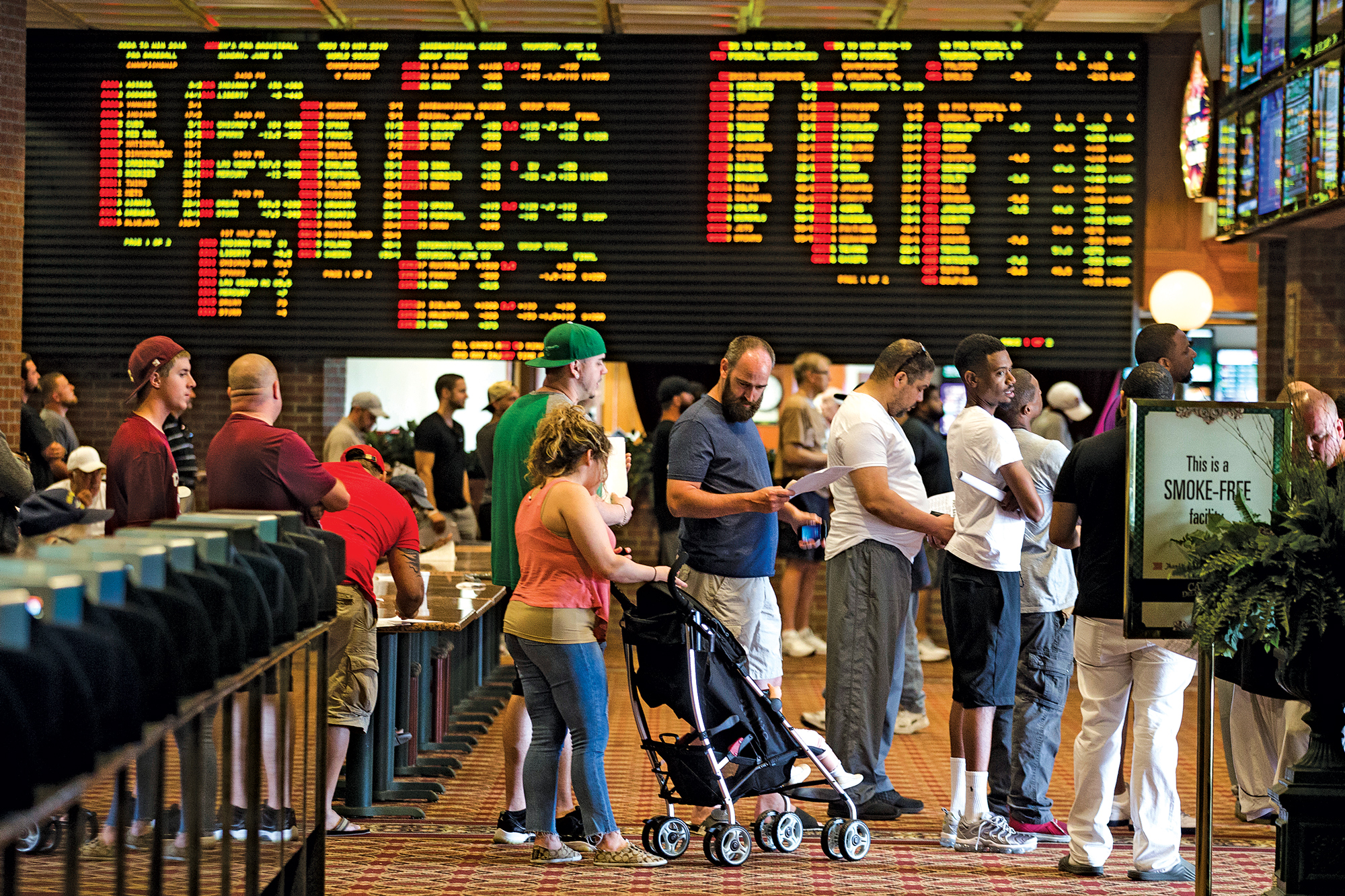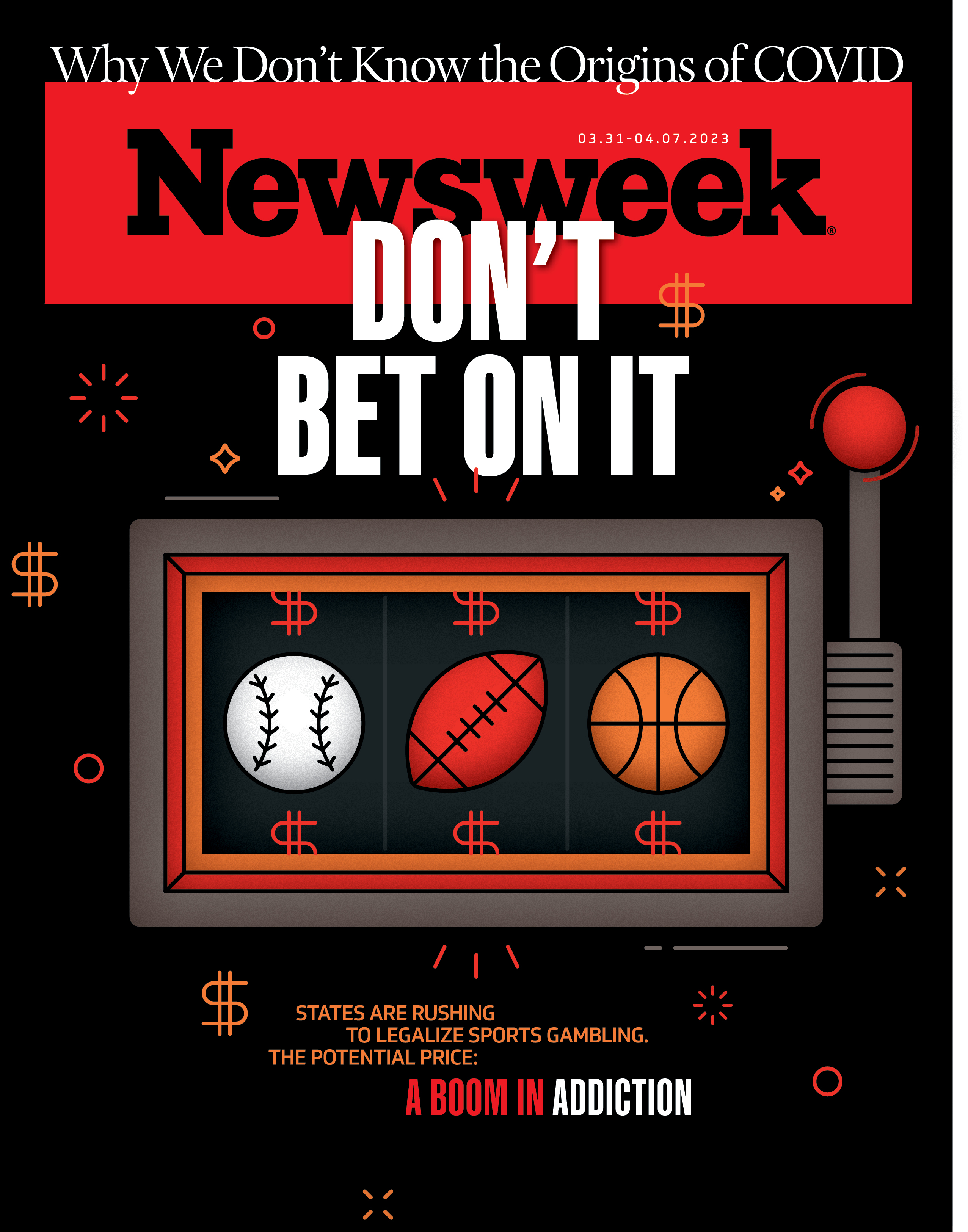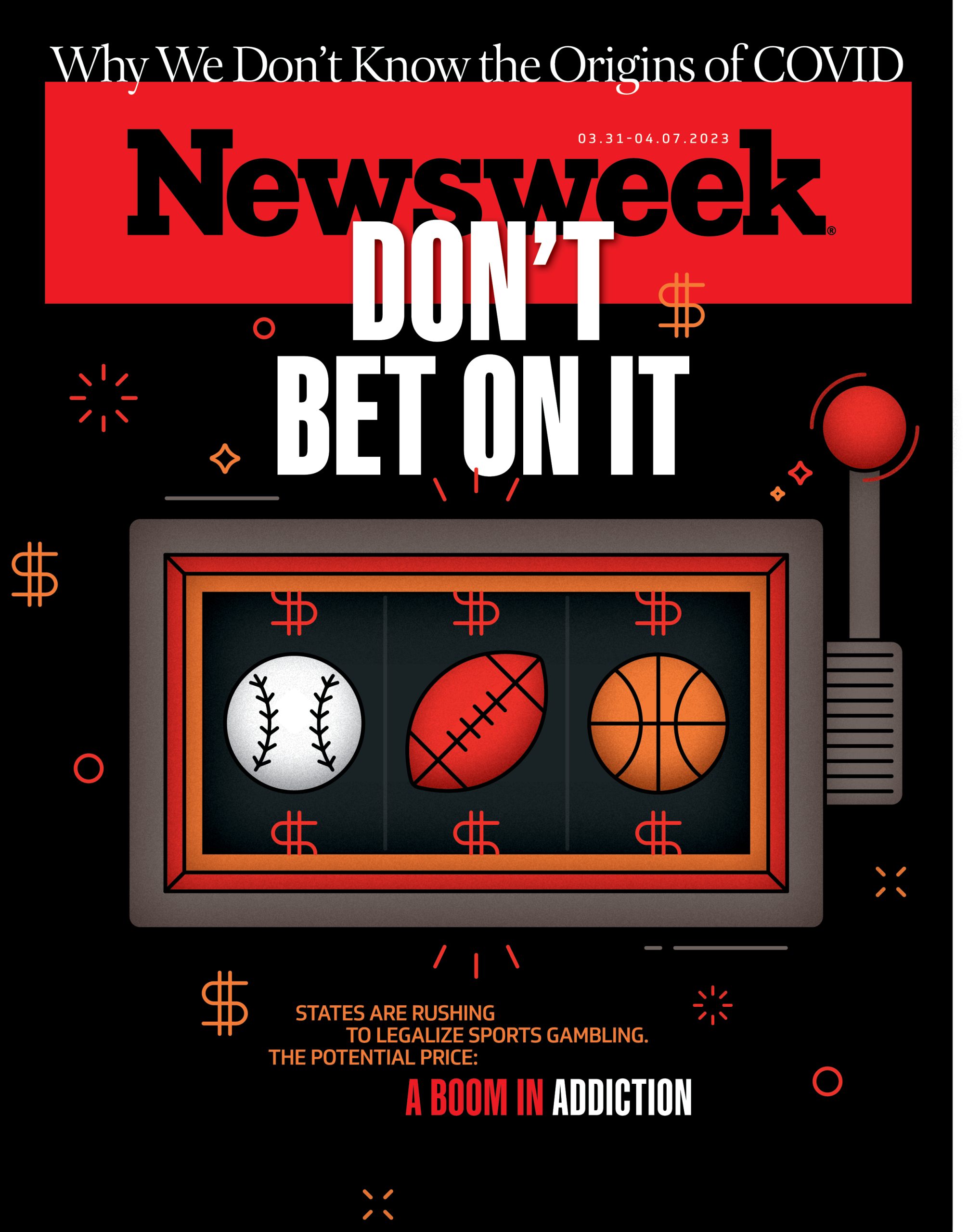Since the Supreme Court opened the door to legalized sports betting in 2018, experts say problem gambling—betting behavior that is financially and emotionally damaging to the gambler or the people who care about them—has risen dramatically.
A spike in calls across the country to gambling help call centers reflects the growing problem. In 2021 (the most recent year for which data is available), calls to the helpline run by the National Council on Problem Gambling, an industry-run group, rose 43 percent, while texts increased 59 percent and chats jumped 84 percent. Meanwhile, a Newsweek analysis of the available data in every state that has legalized sports gambling shows an even more dramatic spike in pleas for help, ranging from a 91 percent jump in helpline calls in Connecticut in the first year after legalization to 425 percent surge in Illinois between 2020 and 2022.

Getty
If you or someone you love is struggling with a sports betting habit that’s causing serious problems, what can you do? Here are ways to get help.
RECOGNIZE THE SIGNS
Gambling addiction is often hidden and hard to identify, especially in the early stages. “It doesn’t change your outward appearance or your outward physiology,” says Jaime Costello, director of programs at the National Council on Problem Gambling. “There’s no physical test.”
Early signs of trouble include spending increasing amounts of time on betting, as well as constantly planning gambling activities and how to come up with the money to wager. “Understanding that somebody often shows preoccupation before a harm starts to develop and helping to raise dialogue with people at that point before it becomes truly problematic…is very important,” says Pamela Brenner-Davis, team leader of the New York Council on Problem Gambling.
Sharp mood swings related to betting or lying to hide the extent of gambling are also common signs that the behavior is becoming problematic. Other signs of trouble include spending increased amounts of money or time on betting to get the same emotional high; trying to cut back or stop gambling without success and experiencing financial problems related to wagering, such as betting more than you can afford, racking up debt and asking others to bail you out of gambling losses.

Stan Grossfeld/The Boston Globe/Getty
PUMP THE BRAKES
Online sports-betting apps, which make it easy to place wagers, also offer easy-to-access tools to curb gambling that’s become problematic—if you’re motivated or self-disciplined enough to use them. Most, for example, allow you to set time and money limits on your bets, which will shut you down at a pre-designated trigger point.
You can also voluntarily enter into a self-exclusion program—run either
by the state or gambling operators, depending on where you live—in which you choose to ban yourself from physical or virtual betting destinations for a set time period.
There are also free or low-cost apps available that block online access to gambling across all of your devices for a time period of your choosing. Programs include Gamban, Bet Blocker, Betfilter and GamBlock. Some apps also provide access to helplines, support groups and other resources to assist sports bettors who are trying to quit.
TAP OUTSIDE RESOURCES
There are a number of nonprofits and government-run organizations that offer information and support to sports gamblers seeking help. Among them:
▸ National Council on Problem Gambling (1-800-522-4700; ncpgambling.org/) provides comprehensive resources for individuals struggling with gambling problems, such as screening tools, a confidential helpline and treatment guide.
▸ State councils on problem gambling. Many states have their own helplines and resources. You can find a directory of local agencies on the National Council on Problem Gambling’s website by clicking on “Help by State” in the Help and Treatment section.
▸ Gamblers Anonymous (gamblersanonymous.org), like its counterparts for people struggling with alcohol or eating addictions, provides peer support groups to help in recovery from problem gambling. Find local or virtual meetings on its website. Gam-Anon (gam-anon.org) offers support to family or close friends of compulsive gamblers.
▸ SAMHSA National Helpline (1-800-662-4357; samhsa.gov/find- help/national-helpline), a service of the federal Substance Abuse and Mental Health Services Administra- tion, can connect you with treatment and support for gambling problems, as well as other substance abuse and mental health issues, which frequently go hand in hand with compulsive gambling.

